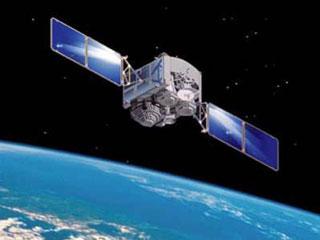
WASHINGTON (PTI): US Trade Representative (USTR) has said that a lack of transparency in the rules governing the provision of satellite capacity of India and China is an issue of concern.
"China and India both generally require that foreign satellite capacity be sold through an intermediary ChinaDBSat or the Indian Space Research Organization (ISRO), respectively.
A lack of transparency in the rules governing the provision of satellite capacity in these countries is also a concern," USTR said in a report announcing the results of the 2011 annual review of operation and effectiveness of telecommunications trade agreements.
With respect to Mexico, commenters question the local presence requirement that Mexico imposes on foreign satellite service suppliers. They note that Mexico's GATS commitments include no such requirement for cross-border telecommunications services, the report said.
"Additionally, with respect to both India and Mexico, commenters express concern that these countries require mobile satellite operators to install a gateway in India or Mexico, respectively, as a condition for providing satellite services into their territories," it said.
Commenters consider these requirements burdensome and unnecessary from a technical standpoint to address the security concerns these countries have raised. USTR will continue to raise the commenters' concerns with China, India and Mexico regarding these issues, the report said.
The report also discusses issues relating to licensing of internet via satellite services and auctioning of mobile spectrum in Costa Rica, classification of value added services in China, and regulatory barriers to providing satellite services in China and India, as well as general problems with providing Voice over IP services in multiple jurisdictions.
"As evidenced by the innovative devices and services now helping drive US economic recovery, a vibrant telecom sector with access to global markets will contribute to our prosperity, and that of companies both big and small," US Trade Representative, Ron Kirk, said.
"To ensure that US service and equipment suppliers can excel and contribute to the competitiveness of the US economy, we must continue to focus our efforts on identifying all barriers and encouraging our trading partners to remove them," he said.
The report again highlights concern that US trading partners are seeking ways to increase the rates US telecommunications operators must pay in order to deliver long-distance calls into the foreign operators' countries (the termination rate), resulting in higher costs for US carriers and higher prices for US consumers.
This year's report focuses on problems in Tonga, Ghana and Jamaica.
 Previous Article
Previous Article Next Article
Next Article









The Indian Air Force, in its flight trials evaluation report submitted before the Defence Ministry l..
view articleAn insight into the Medium Multi-Role Combat Aircraft competition...
view articleSky enthusiasts can now spot the International Space Station (ISS) commanded by Indian-American astr..
view article